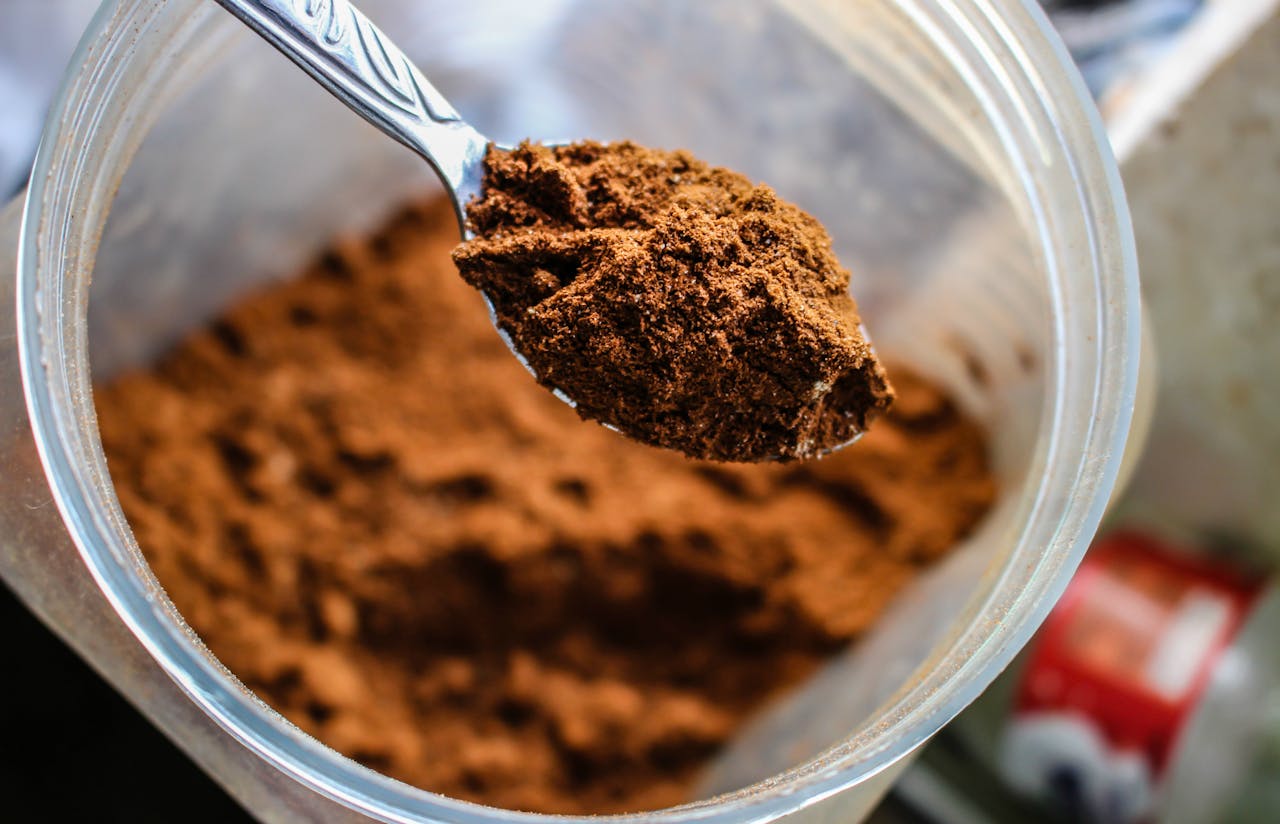If you’re a fan of plant-based protein powder, you’re not alone. According to Future Market Insights, the vegan protein powder market is currently valued at more than $5.3 billion and is expected to nearly double to $10.6 billion over the next decade.
This rapid growth is being driven by rising consumer demand for all things protein-packed. But are these powders really as healthy as they seem? New research from Consumer Reports suggests otherwise.
New study finds a concerning amount of lead in plant-based protein powders
Consumer Reports recently tested 23 different protein powders and shakes and found that many had one troubling thing in common: heavy metals.
In fact, for more than two-thirds of the analyzed products, just one serving contained more lead than the daily safe limit. According to Consumer Reports, this limit, set at 0.5 micrograms, was determined by its own panel of experts. Some products also tested positive for cadmium and inorganic arsenic.
 Pexels
Pexels
Plant-based protein powders were particularly concerning. On average, these products contained nine times more lead than other powders on the market. The researchers noted that lead levels across all products, which are not tested by the FDA, had increased since Consumer Reports’ last round of testing 15 years ago.
The research follows another study by Clean Label Project earlier this year, which also found elevated levels of heavy metals in many protein powders.
Should you panic?
In short, no—but it’s important to be mindful of what you’re consuming.
“Many of these powders are fine to have occasionally,” reads the report. “Even those with the highest lead levels are far below the concentration needed to cause immediate harm.”
However, continuous high exposure to lead is associated with a range of health issues, including reproductive problems, immune suppression, and kidney damage.
“Chronic exposure to lead can cause a range of health issues, particularly neurological problems,” Jennifer Scherer, BS, ACE-CPT, MES, RDN, dietitian, medical exercise specialist, and founder of Fredericksburg Fitness Studio, previously told VegNews.
“In adults, it can lead to high blood pressure, kidney damage, and impaired cognitive function,” she added. “In children, lead exposure is more dangerous, potentially causing developmental delays, lower IQ, and learning disabilities. There is also evidence linking lead exposure to reproductive toxicity in both men and women.”
Consumer Reports experts noted that while the risk is low, small amounts of lead can accumulate in the body over time. They added that since protein supplementation isn’t actually necessary, daily use of protein powders isn’t recommended.
Isa Chandra Moskowitz
“We advise against daily use for most protein powders, since many have high levels of heavy metals and none are necessary to hit your protein goals,” said food safety researcher and chemist Tunde Akinleye.
If you’d rather skip powders altogether, it’s easy to boost your protein intake with plant-based whole foods, like tofu, tempeh, and beans. Want to learn more? Check out some of our favorite high-protein vegan recipes here.
For more plant-based stories like this, read:
JUMP TO ... Latest News | Recipes | Guides | Health | Subscribe










